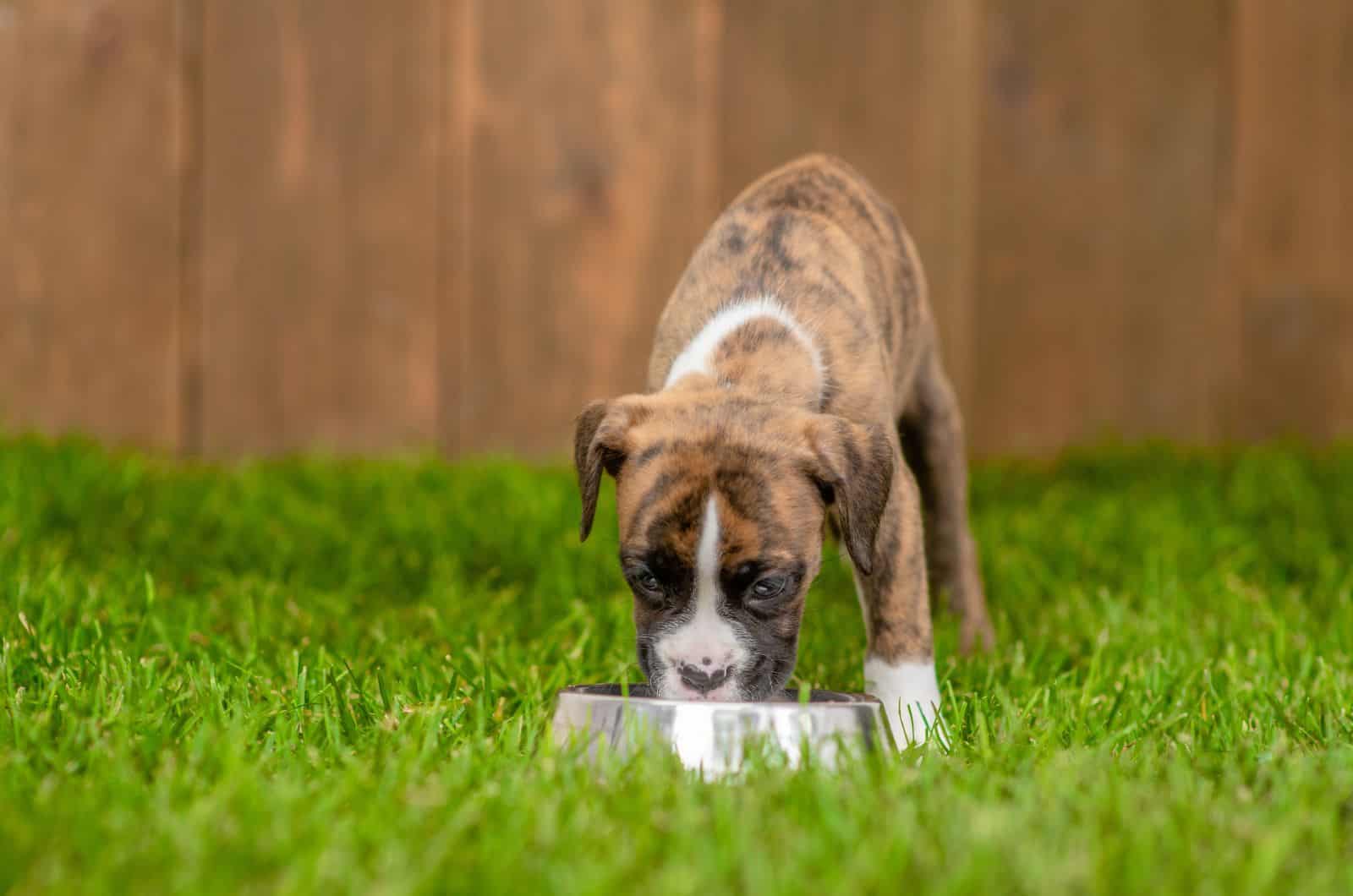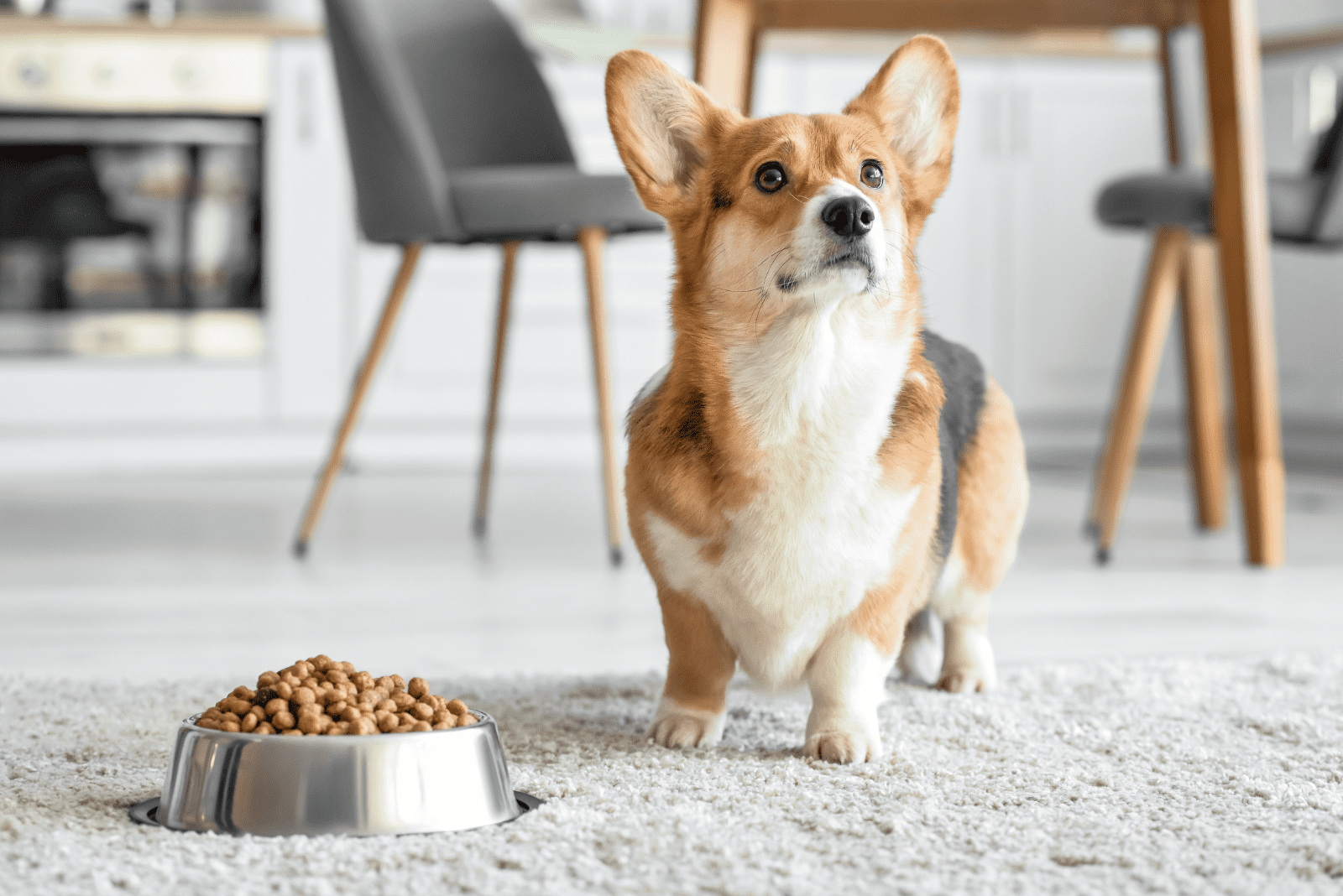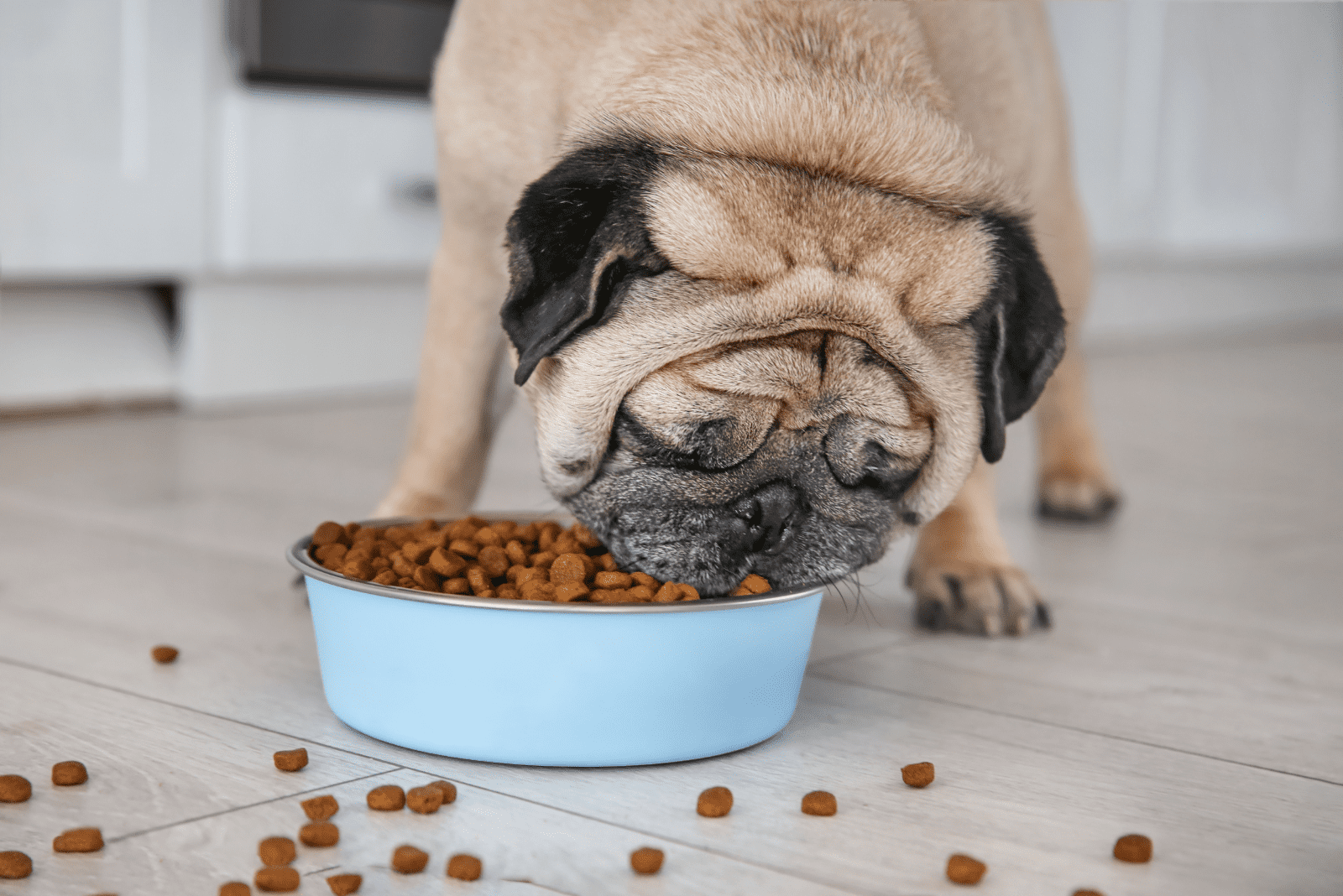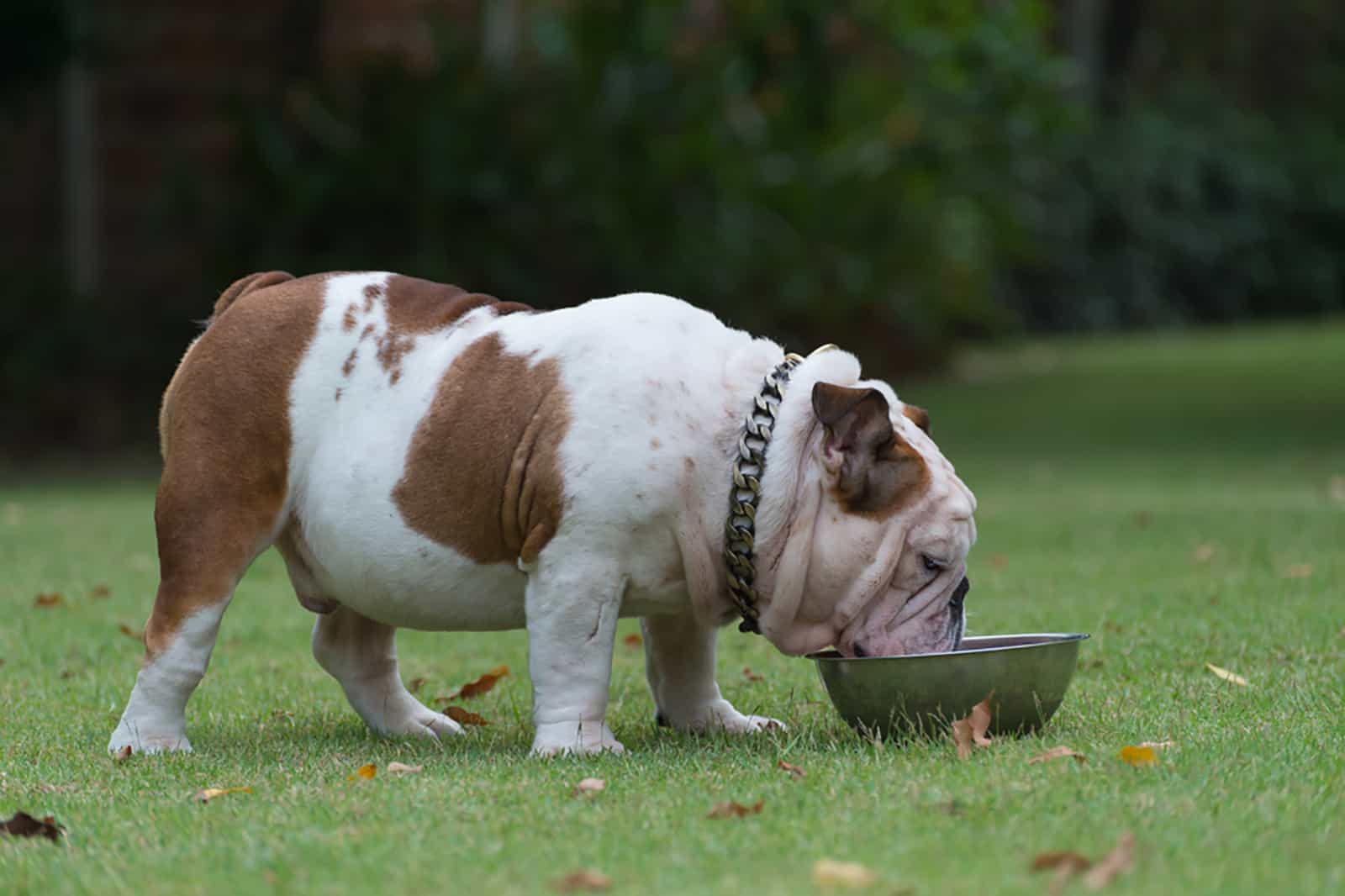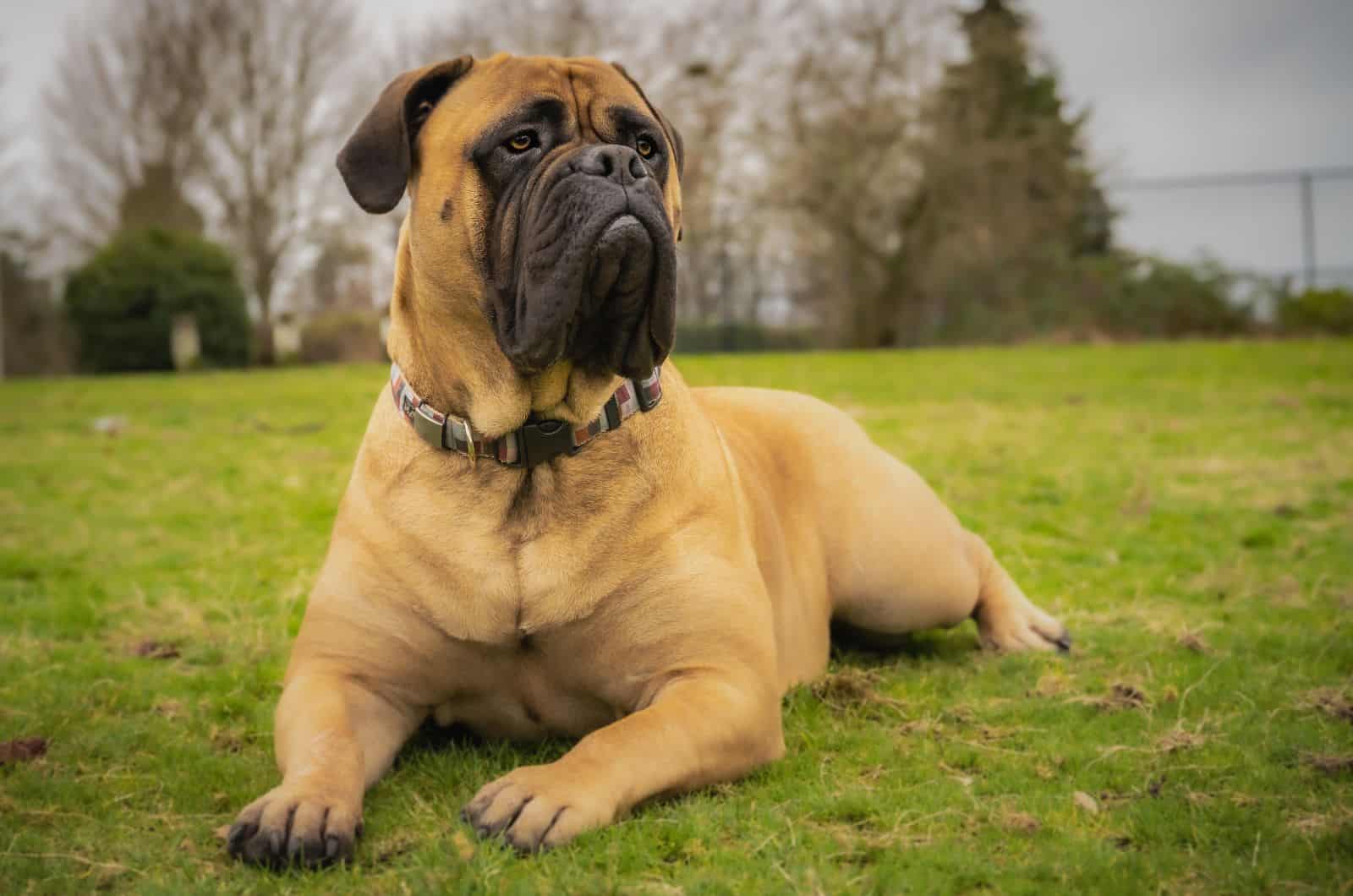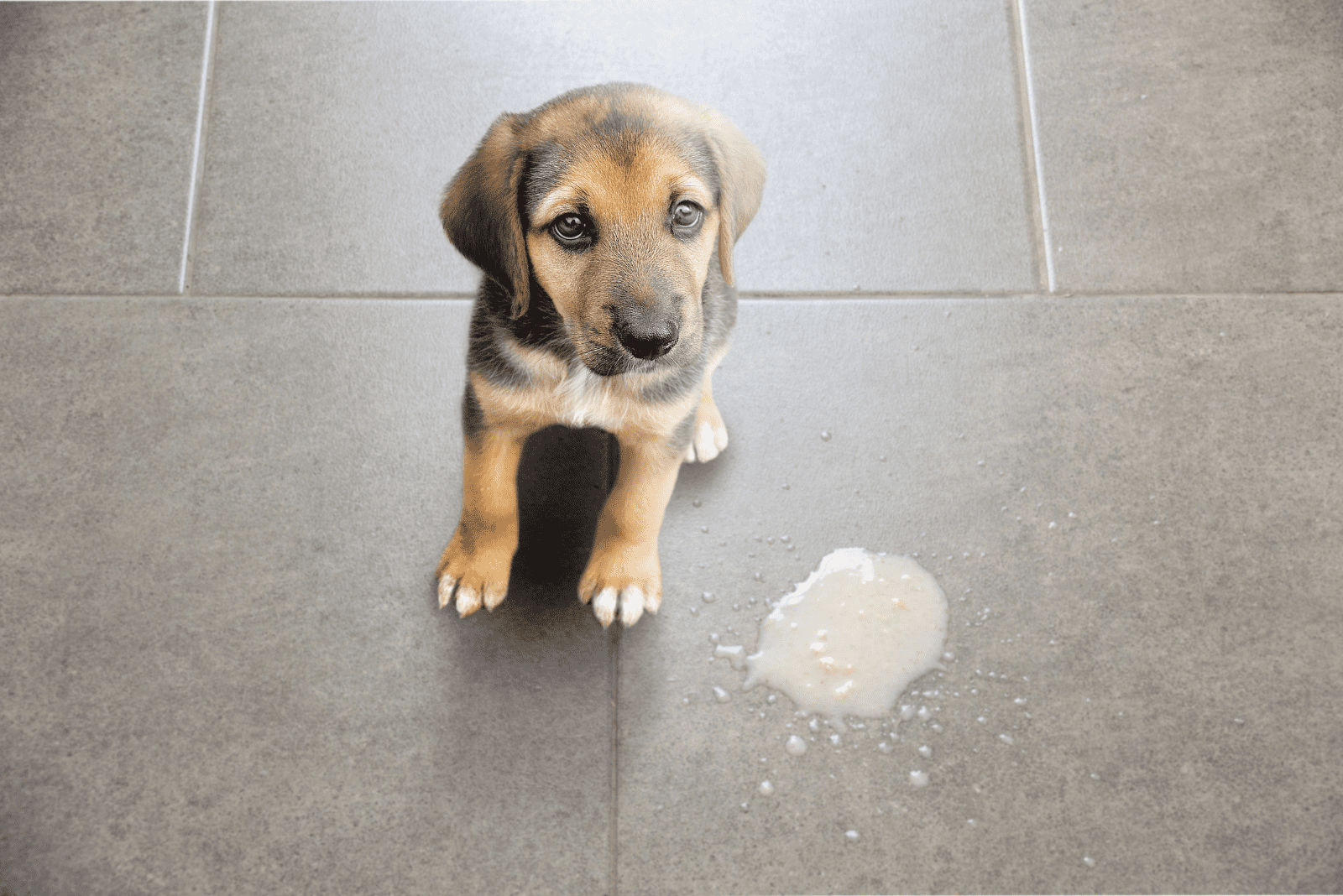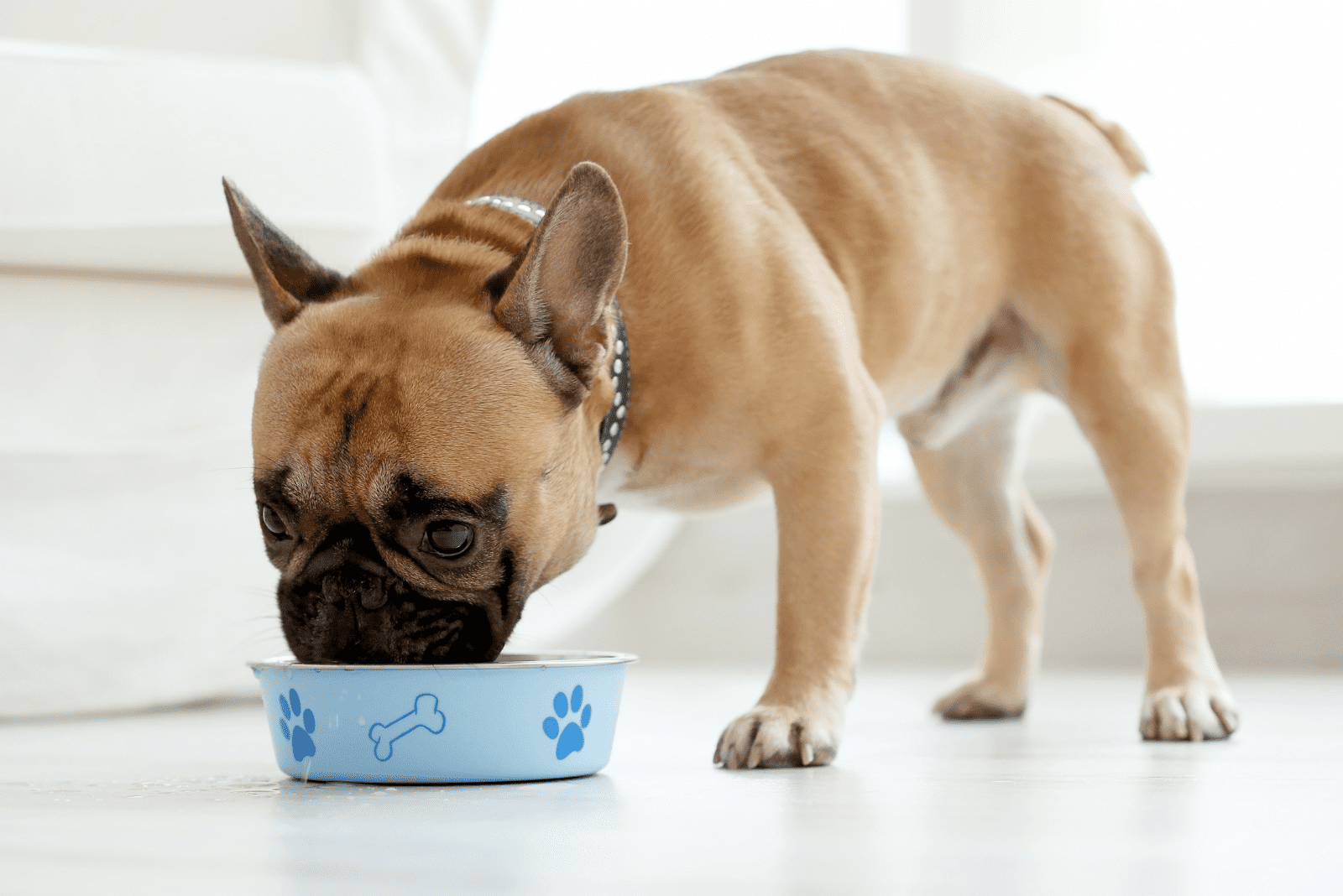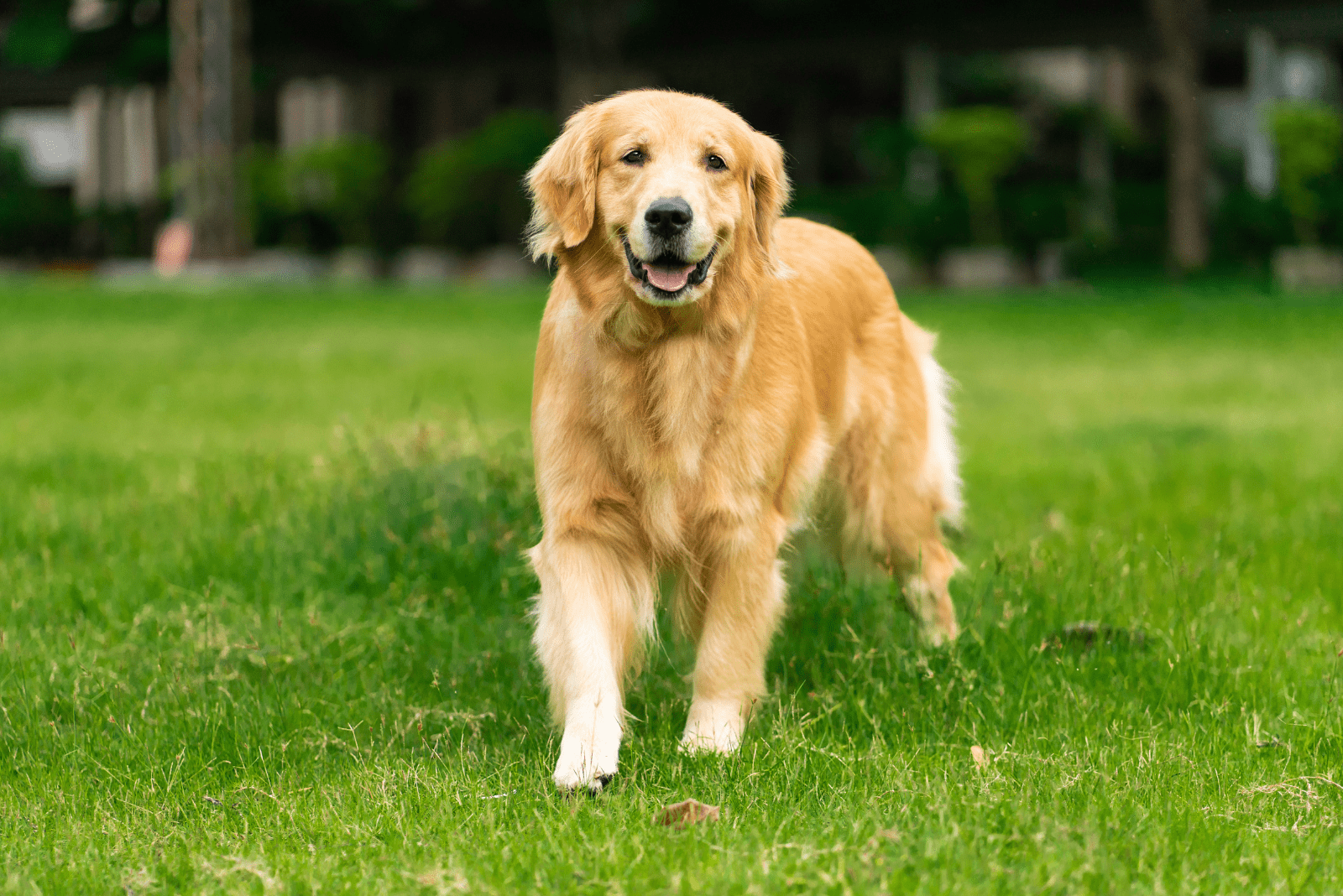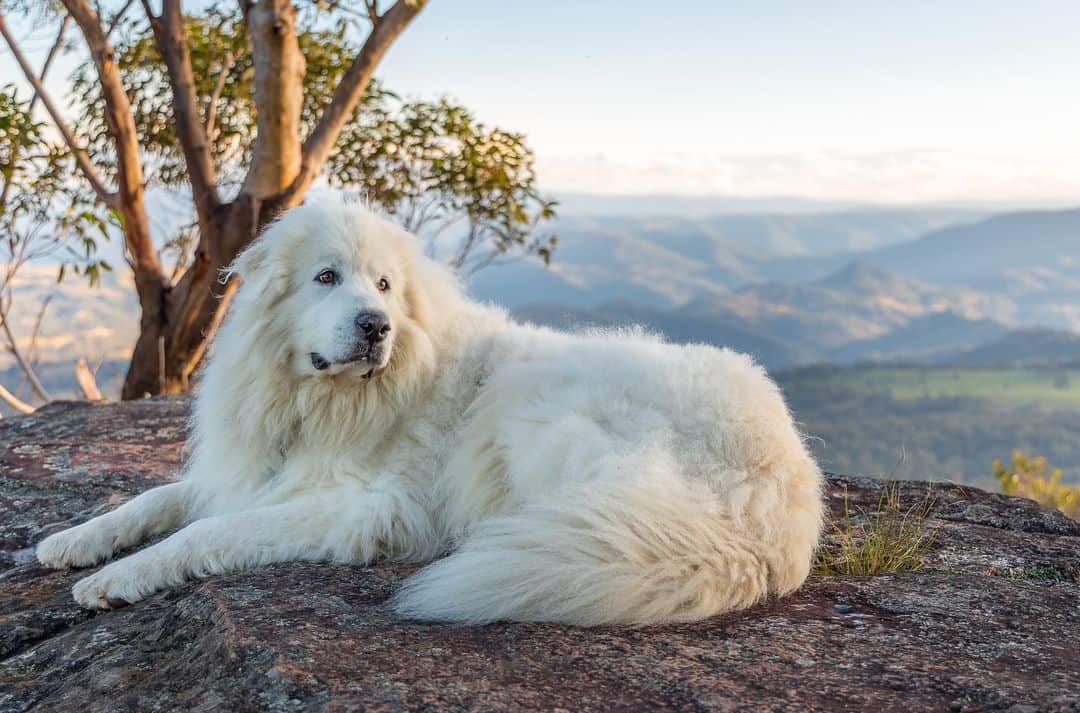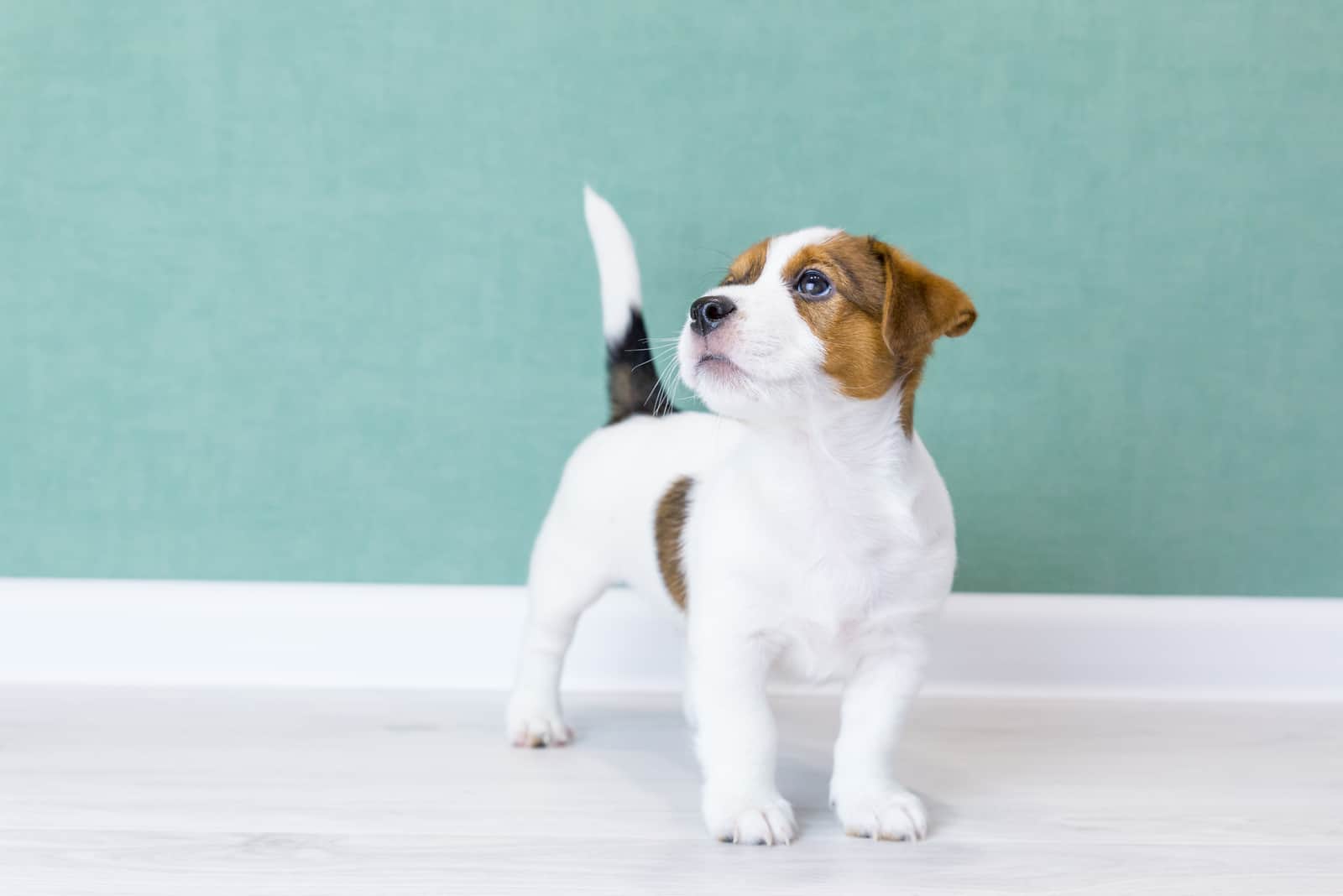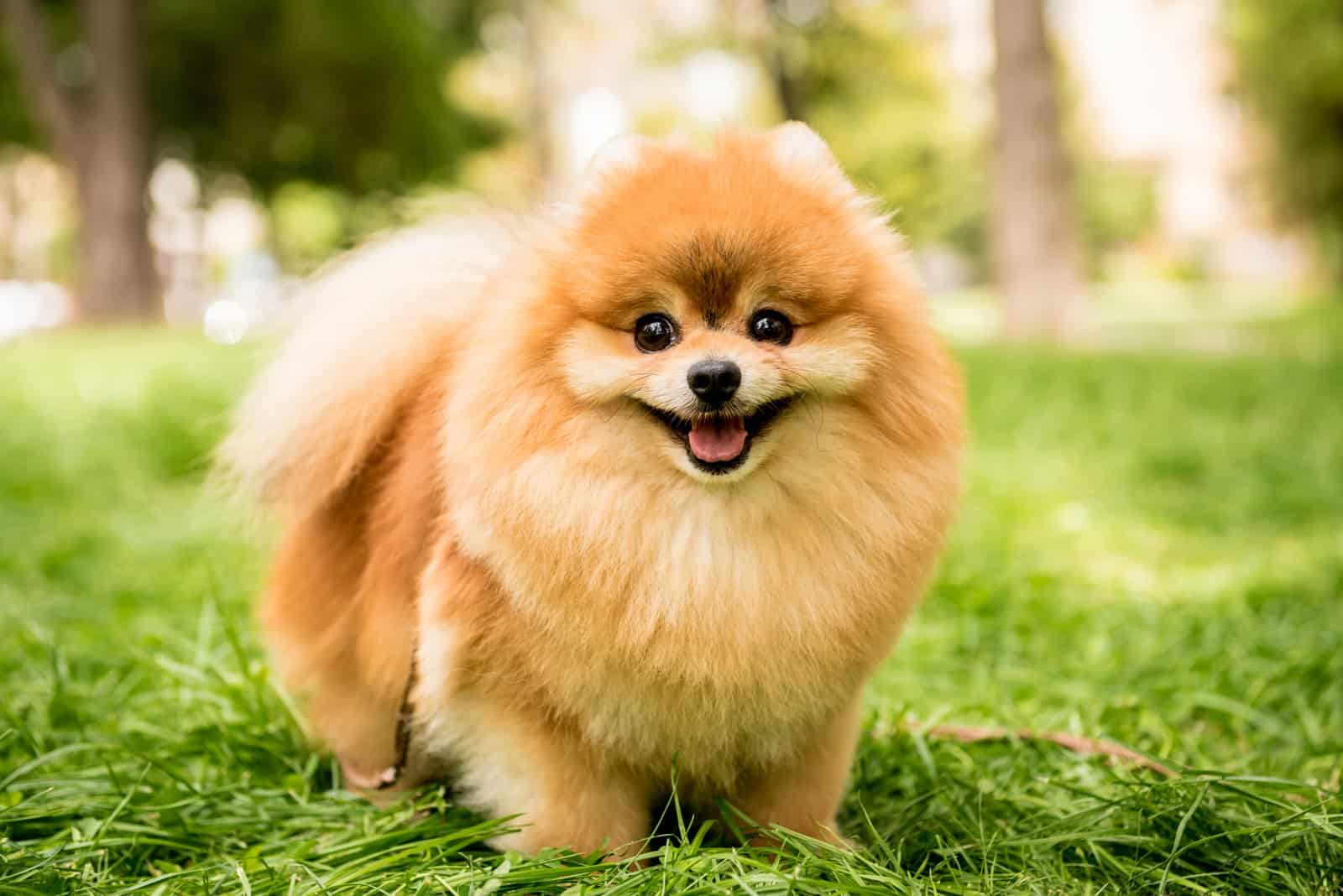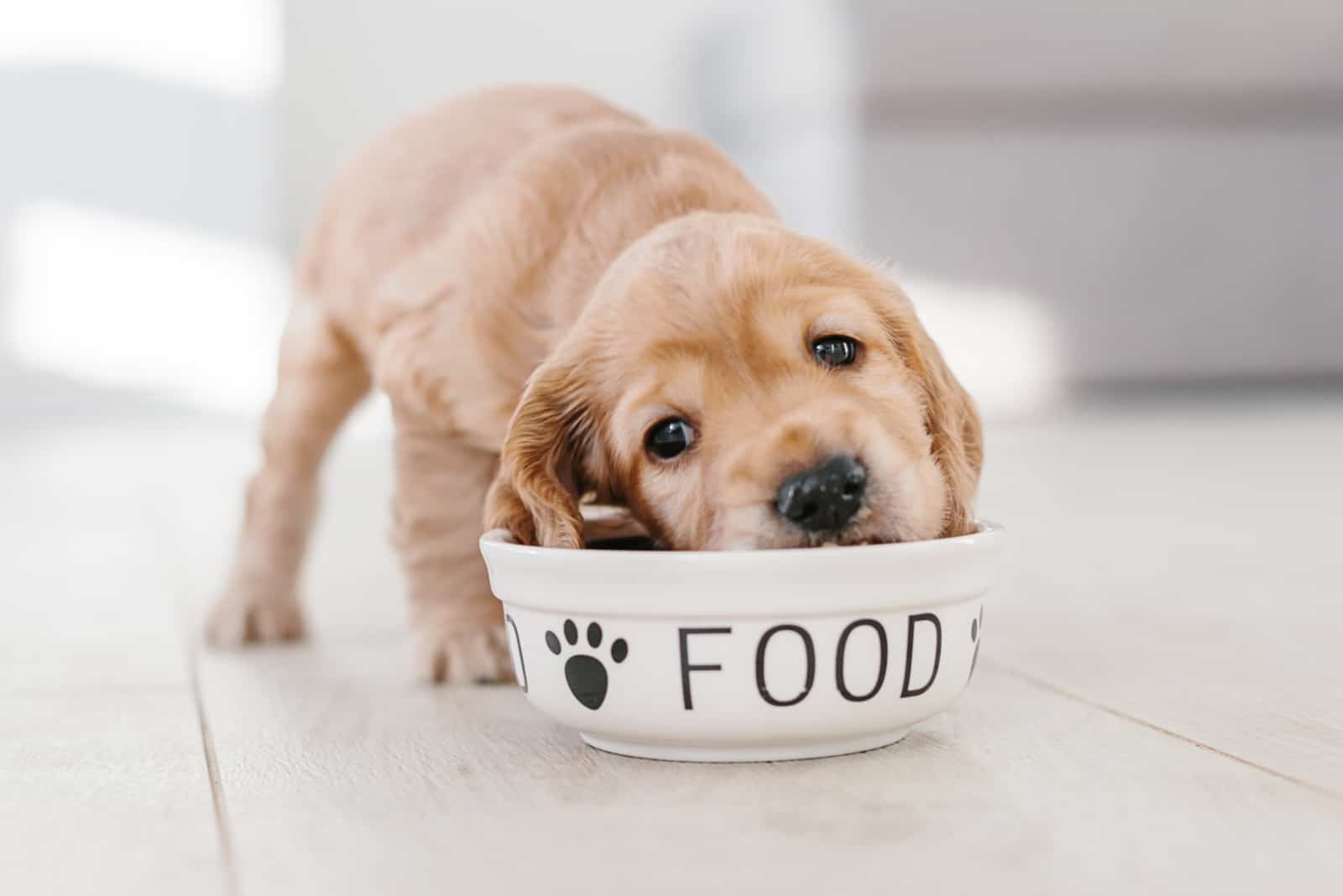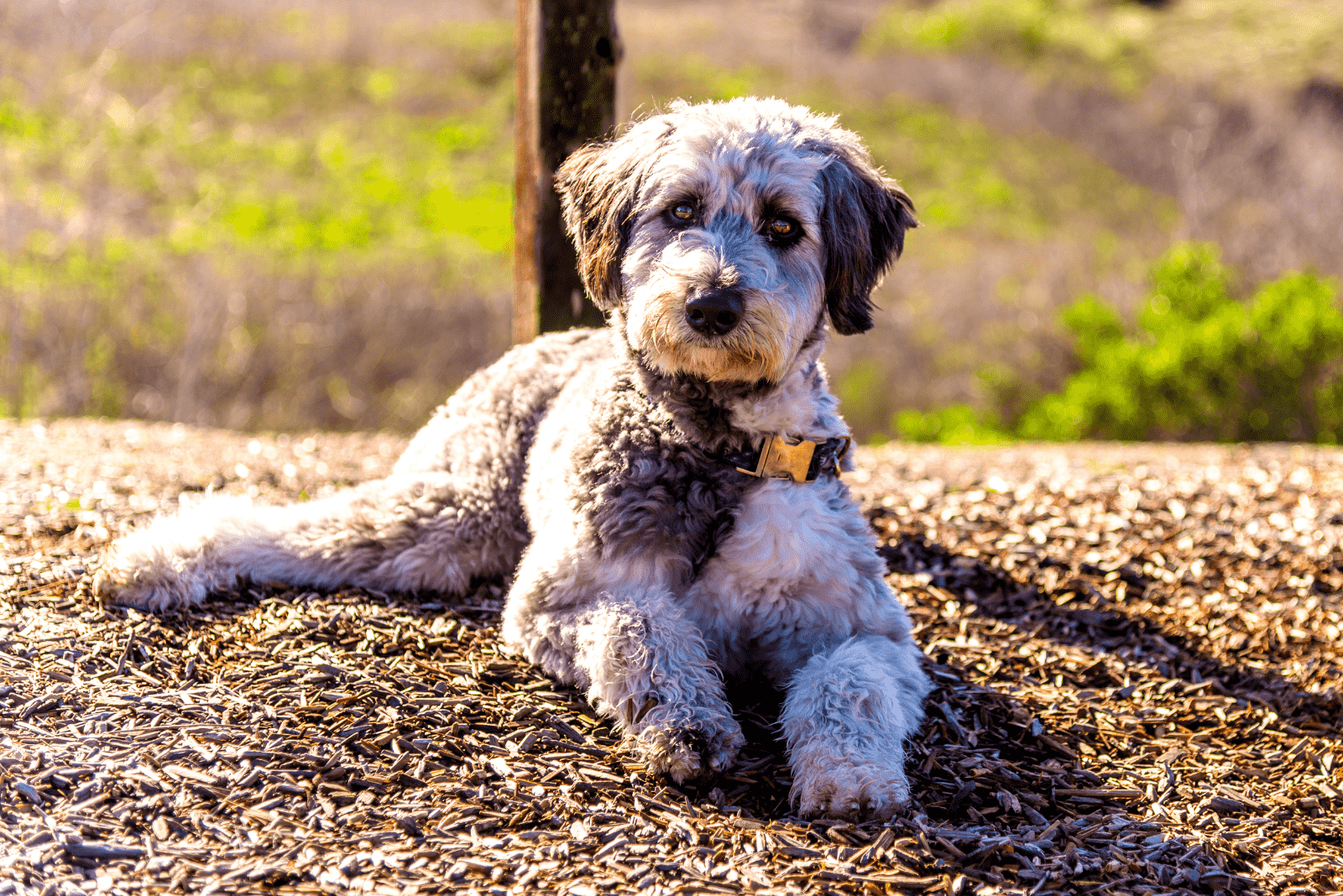Among all Mastiff-type dogs, the one that really gets my attention is the Boerboel dog.
The Boerboel is a purebred Molosser that originates from South Africa. As we all know, the Mastiff type dogs are large breeds. We’re talking about dogs such as Cane Corsos, Bullmastiffs and English Mastiffs.
It is believed that ages ago, the Boerboel dog was used to protect its household from all kinds of predators. This courageous dog would stand up against lions, leopards, and tigers. It is described as fearless, brave, strong, and loyal.
Confronting lions says a lot about the Boerboel dog’s size, right? I mean, you wouldn’t expect a Chihuahua to stand up against a lion!
We cannot be quite certain as to whether this tale is true or not. But, we are definitely sure that the Boerboel dog is a one-of-a-kind guard dog that will do anything to protect its human pack.
The Boerboel growth chart is here to help figure out exactly how big this large dog gets.
The Boerboel growth chart focuses on the Boerboel puppy’s growth and weight through different developmental stages.
So, if you are a new or future Boerboel owner, this Boerboel growth chart will definitely come in handy.
Let’s get going!
Boerboel Puppy Growth Chart
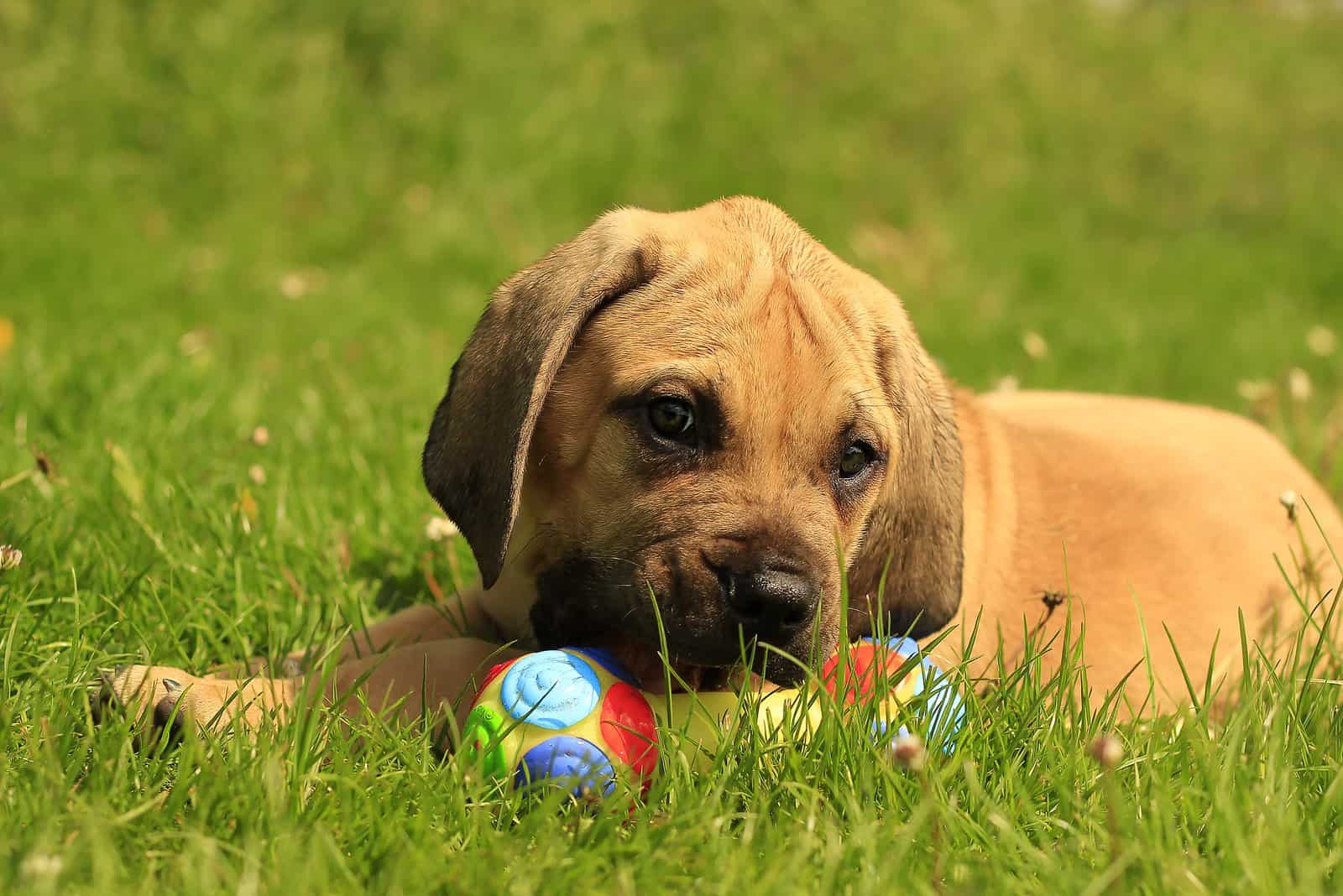
Before purchasing or adopting a Boerboel puppy, I advise you to take a look at this Boerboel puppy growth chart. Estimating puppy growth is important for new dog owners to prepare for all of the puppy challenges in front of them.
Not only does this puppy growth chart show how big a Boerboel puppy will get, it also shows the differences between male and female Boerboel dogs.
So, to get a clearer picture, here is a quick Boerboel puppy growth chart overview.
| Age | Male Boerboel Puppy | Female Boerboel Puppy |
|---|---|---|
| 8 Weeks | 14 – 17 Inches | 12 – 15 Inches |
| 10 Weeks | 16 – 19 Inches | 14 – 17 Inches |
| 12 Weeks | 19 – 22 Inches | 17 – 20 Inches |
| 4 Months | 20 – 23 Inches | 18 – 21 Inches |
| 5 Months | 21 – 24 Inches | 19 – 22 Inches |
| 6 Months | 22 – 25 Inches | 20 – 23 Inches |
| 7 Months | 23 – 26 Inches | 21 – 24 Inches |
| 8 Months | 23 – 26 Inches | 21 – 24 Inches |
| 9 Months | 23 – 26 Inches | 21 – 24 Inches |
| 10 Months | 23 – 26 Inches | 21 – 24 Inches |
| 12 Months | 24 – 27 Inches | 22 – 25 Inches |
| 24 Months | 24 – 27 Inches | 22 – 25 Inches |
It’s incredible how tall these dogs can get. The Boerboel’s height is measured from its paws up to its withers. Now, compared to a large dog, such as the Bullmastiff, our South African Mastiff is an inch shorter, but a few pounds heavier!
Boerboel dogs are crossed with other large breeds. For example, a Cane Corso Boerboel mix is one of the most incredible Boerboel mixes that will surely weigh less than a Boerboel, but more than a Cane Corso.
will surely weigh less than a Boerboel, but more than a Cane Corso.
Now that we know the approximate height of the Boerboel dog, it’s time to check out how heavy these dogs get!
Boerboel Puppy Weight Chart
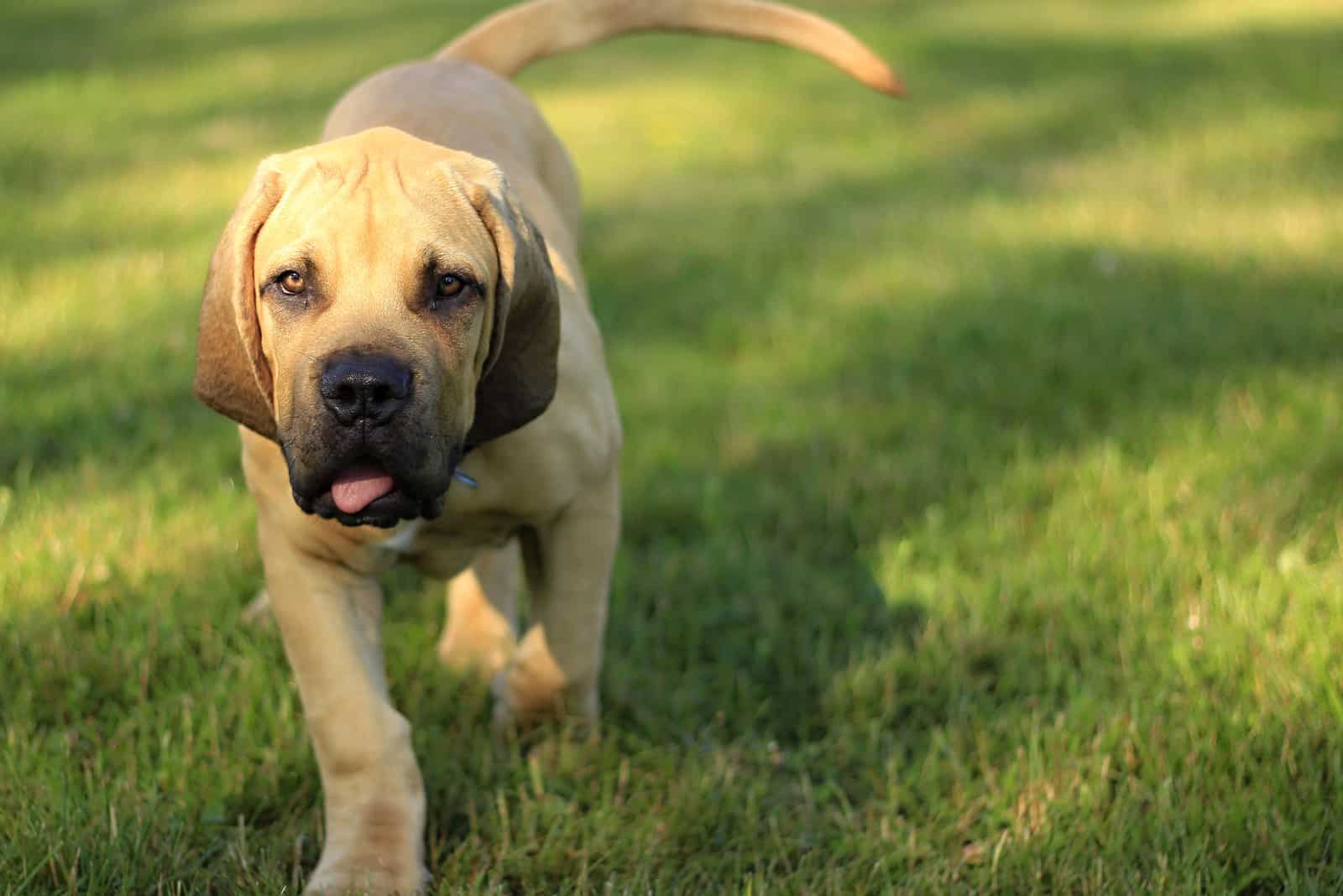
The South African Boerboel puppy looks like a little dog that came straight from a cartoon. Its wrinkly face and body, along with its black-colored snout, makes you want to cuddle the heck out of it!
Considering that the Boerboel dog is a very large dog, its puppies are also going to be bigger than your average puppies in a litter.
Here’s an overview of the female and male Boerboel puppy’s weight.
Age Male Boerboel Puppy Weight Female Boerboel Puppy Weight
| Age | Male Boerboel Puppy Weight | Female Boerboel Puppy Weight |
|---|---|---|
| 1 month | 15 – 20 lbs | 13 – 15 lbs |
| 2 months | 28 – 30 lbs | 24 – 26 lbs |
| 2.5 months | 36 – 45 lbs | 32 – 34 lbs |
| 3 months | 45 – 60 lbs | 39 – 42 lbs |
| 4 months | 60 – 78 lbs | 50 – 55 lbs |
| 5 months | 80 – 100 lbs | 65 – 70 lbs |
| 6 months | 100 – 115 lbs | 80 – 95 lbs |
| 7 months | 125 – 138 lbs | 90 – 110 lbs |
| 8 months | 140 – 150 lbs | 110 – 135 lbs |
| 9 months | 155 – 160 lbs | 112 – 120 lbs |
| 10 months | 165 – 170 lbs | 115 – 120 lbs |
| 11 months | 170 – 175 lbs | 118 – 125 lbs |
| 12 months | 175 – 180 lbs | 120 – 122 lbs |
| 13 months | 180 – 185 lbs | 122 – 125 lbs |
| 14 months | 185 – 190 lbs | 125 – 130 lbs |
| 18 months | 190 – 220 lbs | 150 – 200 lbs |
Before we head further into this article, let’s observe this Boerboel puppy weight chart and check for puppy growth spurts.
Notice how a Boerboel puppy rapidly grows during its first seven months of age. After that, a slight decrease in growth rate can be seen.
Female Boerboel puppies are usually a few pounds lighter than male Boerboel puppies. Normally, Boerboel females follow the growth of their male siblings, but they don’t reach the same adult height and adult weight.
How Long Does It Take For A Boerboel To Be Fully Grown?
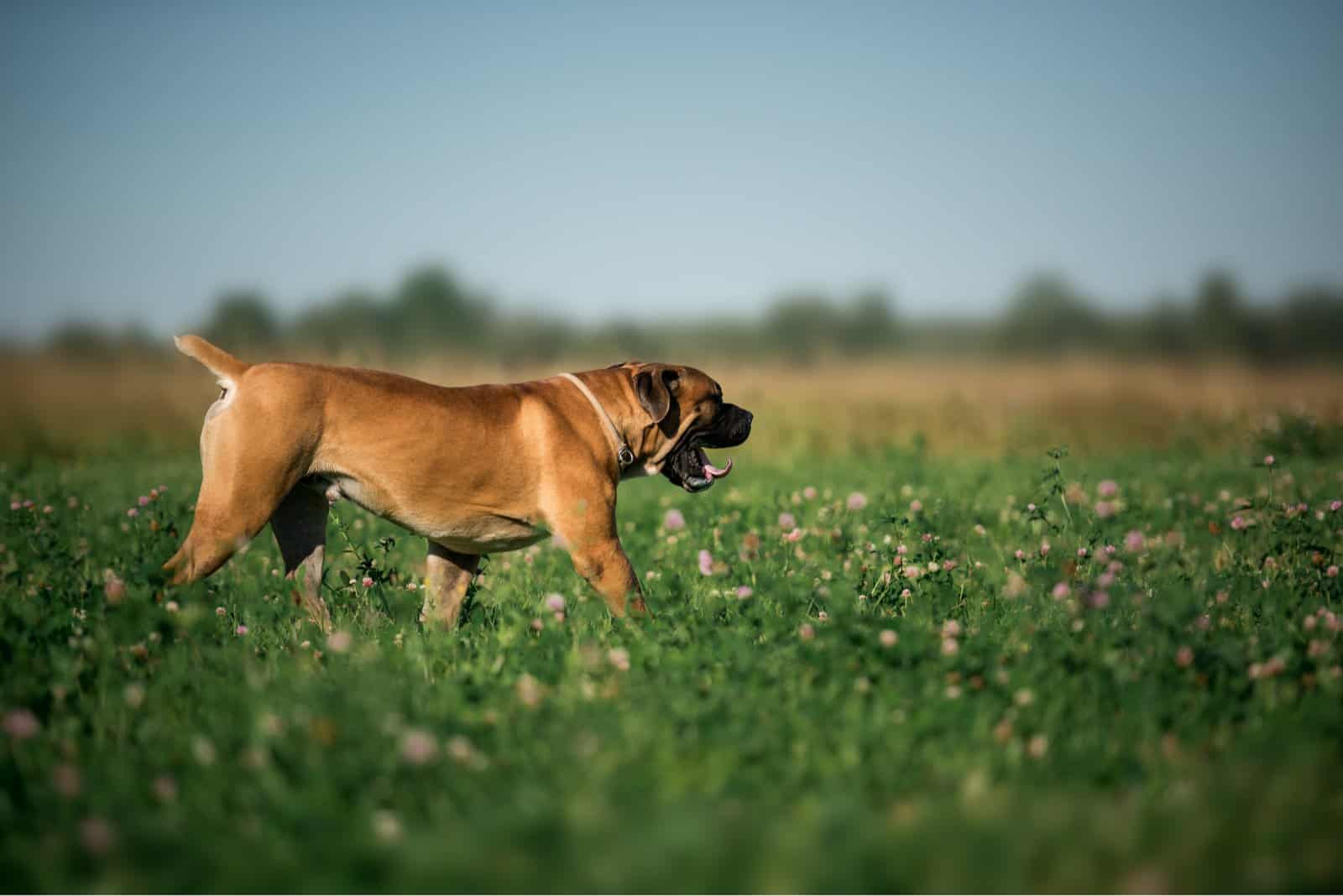
After you have read about the Boerboel puppy’s growth and weight, it’s about time we tell you how long it takes for a Boerboel puppy to be fully grown.
To begin with, let’s say that the Boerboel puppy growth greatly depends on the dog’s genetics, which we will discuss later in this article.
Being a large breed, the South African Boerboel’s body takes time to grow. At 18 to 24 months of age, both Boerboel male and female dogs will reach their adult height. So, they will basically stop growing when they are over a year or over two years old.
Even though they stop growing in height, Boerboel adult dogs still keep gaining a few pounds.
If you are wondering how to tell whether your Boerboel puppy has reached its adult size, you can simply weigh it and compare its weight to this Boerboel growth chart.
Another way to tell whether your Boerboel puppy is fully grown or not is by using a puppy weight calculator.
Nevertheless, you will definitely know the moment your Boerboel dog has reached adult size — this giant will probably take more space than you do!
Boerboel Puppy Growth: Stages Of Puppy Development
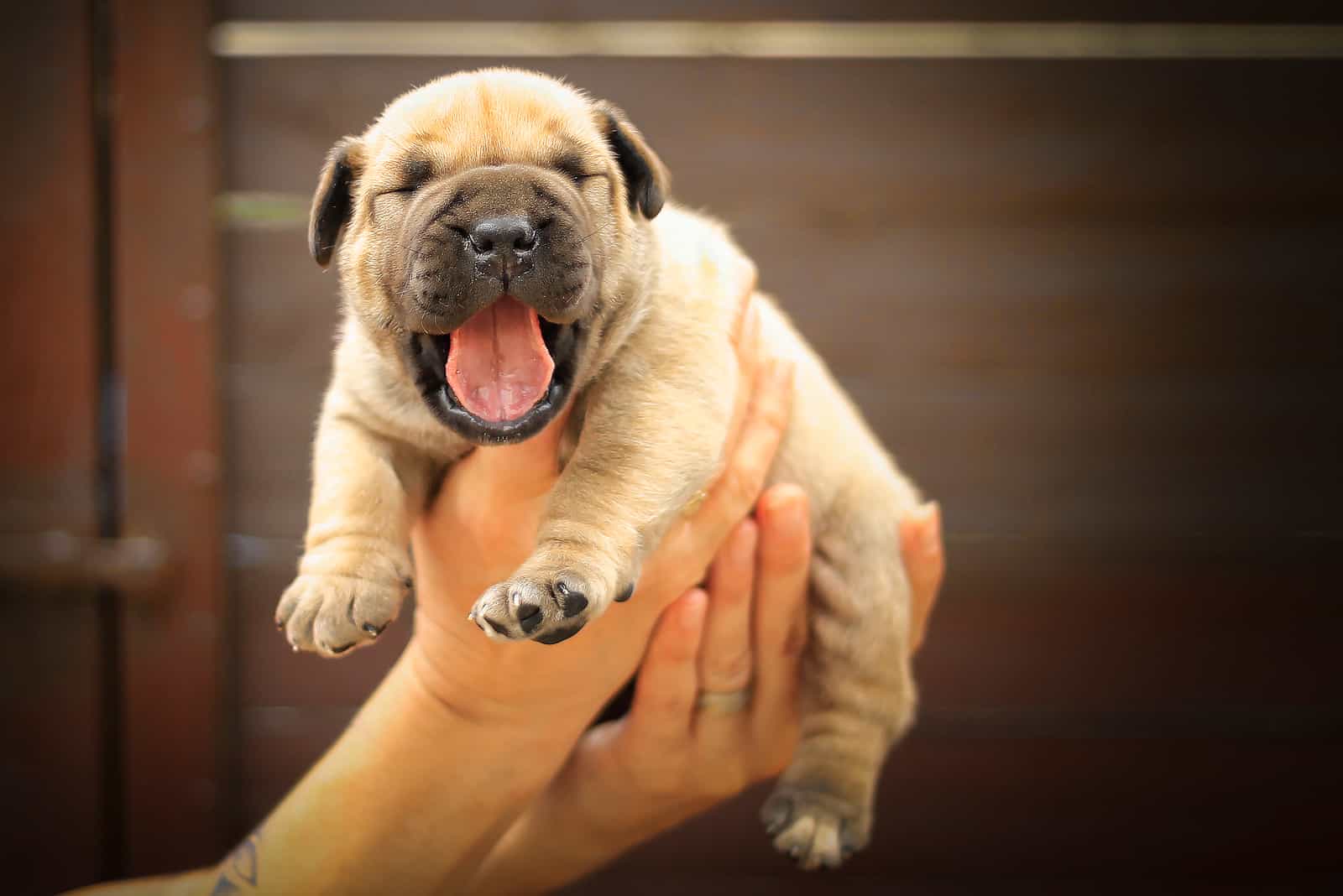
Puppy development stages are probably my favorite thing to talk about, especially when it comes to giant breeds.
Boerboel puppies are known to grow so fast that before you know it, there is a large dog sitting next to you! Your little Boerboel puppy will very soon outgrow your lap. But, even at its adult size, a Boerboel dog will still behave like a lap dog.
Because Boerboel puppies are so cute, most owners wish that they will never grow up! However, in the blink of an eye, these puppies grow into massive guard dogs.
Well, we ought to start somewhere. Let’s begin with the very first seconds of the Boerboel puppy’s life — the birth of a giant.
Birth To Four Weeks Of Age
Typically, there are seven to ten Boerboel newborns in a litter. In rare cases, there can be between 15 and even 19 puppies that a Boerboel mother can carry. That’s a lot of puppies!
Have you ever wondered, “How much does a Boerboel puppy weigh at birth?”
Well, most Boerboel puppies are born weighing around three to three and a half pounds. From the very start, male Boerboel puppies are slightly larger and heavier than females.
Despite being small during the first seconds of their life, Boerboel puppies will soon reach over ten pounds.
In fact, during the first four weeks, Boerboel puppies weigh between 13 and 15 pounds. A four-week-old male Boerboel puppy is normally heavier than its female counterpart.
Note that during this period, the whole litter is very dependent on the Boerboel mom.
Four Weeks To Four Months
After a month, the Boerboel puppy slowly stops nursing. So, at around one and a half months of age, the Boerboel puppy begins to transition from its mother’s milk to soft puppy food.
Now, this is where high-quality dog food plays an important part in the Boerboel puppy’s development. But, don’t worry – we will talk about that later.
The period between eight weeks and four months of age marks the beginning of a puppy growth spurt.
Male Boerboel puppies usually weigh between 29 and 30 lbs, whereas female Boerboel puppies weigh from 24 to 25 pounds.
Through eight weeks and four months of age, the Boerboel puppy gains over 20 pounds. However, at four months of age, the Boerboel puppy isn’t even near its adult weight and size!
In fact, at four months of age, a Boerboel puppy weighs between 50 and 60 pounds, depending on its gender.
Four Months To Ten Months
At six months of age, the Boerboel puppy is halfway to its full size. It now weighs between 80 and 120 pounds.
During this period, you will notice the last growth spurts, as the Boerboel puppy will soon reach its adult size.
Some owners notice that their Boerboel puppy is restless, full of energy, and always ready to play. This is perfectly normal for puppies of this age. Don’t be surprised if they continue with this behavior even when they reach adulthood!
10 Months To 18 Months
At 12 months of age, the Boerboel puppy is “officially” an adult. Or, is it?
Well, according to the American Kennel Club (AKC), the Boerboel puppy reaches sexual maturity between six and nine months of age. But, at 12 months of age, this large dog hasn’t yet stopped growing.
The period between 12 and 18 months of age is still considered a growth period for the Boerboel dog. Both male and female dogs will continue to gain a few more pounds and inches.
All Grown Up – The Adult-Size Boerboel
Consider your Boerboel puppy grown up when it reaches 24 months of age. An adult Boerboel dog will have developed the distinguished features of this dog breed.
A droopy, wrinkly face, flappy ears, and distinct black face coloring is what we want to see in a purebred adult Boerboel dog.
Alongside its unique physical appearance, the adult Boerboel dog is calm, assertive, and obedient. By now, he has learned all that it takes to be a good boy!
Boerboel Growth Rate
So, Boerboel dogs are quite large, growing up to 24 inches in height. But, how fast do they grow?
It is known that most puppies grow the fastest between one week and eight weeks of age. To put this in numbers, during this period, the puppy’s growth rate is from five to 10% per day.
And, as you can see in the Boerboel growth chart table, these puppies continue to grow fast up until eight months of age. After all those growth spurts, when the puppies are closer to adulthood, their growth rate slightly declines.
What Influences Boerboel Puppy Growth And Development?
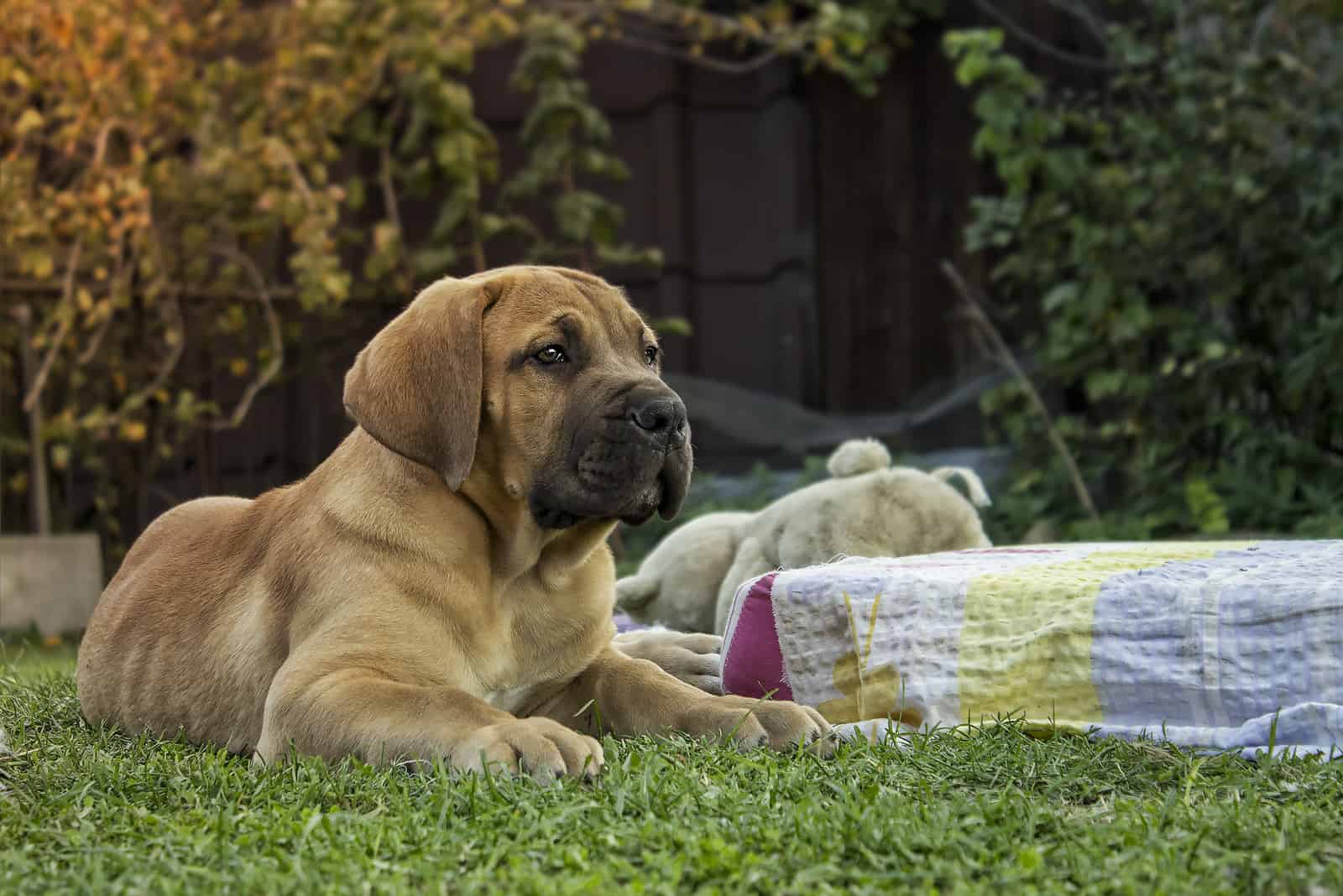
Let’s move the numbers to the side and talk about physiological and environmental factors that affect the Boerboel puppy’s growth and development.
These growth factors that we are about to mention are, in fact, intertwined with one another. What this means is that most either depend on each other or have negative effects towards each other. All of these factors are crucial for the Boerboel puppy’s growth.
If any of these factors is excluded from the Boerboel puppy’s growth, there is a chance that the puppy will not grow into a healthy adult dog.
Most reputable Boerboel breeders explain the importance of these factors to their puppy buyers. In case you got your Boerboel puppy without receiving enough information about how to care for its growth, here is all that you need to know.
Genetics And Environment
These two factors depend on each other. Genetics is described as either physical or mental traits that the Boerboel puppies inherit from their parents. Genes are present in all living beings in this world, and there would be no life without them. But, there would also be no life without a proper environment in which to grow and develop.
When it comes to dogs, genetics is among the main focused topics. For example, take a look at the world of dog breeders. Throughout time, these breeders have developed various dog breeds with desired personality and appearance traits.
How do you think that these dog breeders were able to develop such desired traits? Of course, they didn’t have a recipe for making the perfect dog. So, dog breeders relied on genetics.
To develop favored traits in dogs, scientists have been basically playing with genes. Thanks to that, today, our Boerboel puppy is a kind-hearted, gentle giant. But, these genetic traits cannot maintain themselves on their own. Here is where environmental factors take place.
Environmental Factors
A high-quality dog with a great genetic profile is described as a dog with an excellent bloodline. But, such a high-quality bloodline cannot be achieved without proper environmental factors. Let’s look at some examples.
When a puppy is born, it interacts with its mother and its littermates. In other words, its surroundings are what welcome it into this world. Now, after the puppy has been born, a great part of its little life concerns its geographical condition.
What I mean by this is where in the world this puppy is born. If a puppy is born in a colder region from where most Samoyeds derive, it will most likely inherit a long, thick coat to help fight the cold weather conditions.
The Boerboel dog originates from South Africa. That said, this large dog has developed physical traits (a shorter coat) that are in sync with this geographical condition. It isn’t supposed to endure colder temperatures like the Samoyed.
So, now we see how temperature dictates genetics. It plays an incredibly important part in molding the characteristics of different dog breeds. We notice that this large dog breed does not have a long coat, nor does it have an interdigital net for swimming like most Retrievers do.
All puppies must have access to light. The main source of light is the sun, and we know that every organism needs the sun in order to live.
Developmental health issues are noticed in puppies that are born in the dark and those that continue to stay in darker environments. Such health conditions include rickets and hormonal imbalance.
Hormones And Sleep
Now that we have mentioned hormones, we might as well tell you a little about them. I want to focus on testosterone and estrogen, as these two are the main sex hormones that play a key role in Boerboel puppy growth.
Testosterone is produced by the testicles in male dogs, and estrogen is produced by the help of the ovaries in female dogs. These two hormones are crucial in Boerboel puppy development. Thanks to them, each puppy develops gender-specific characteristics. That way, we can distinguish male from female pups. So, neutering or spaying a Boerboel puppy too soon may result in developmental issues.
Other hormones that are important for the Boerboel puppy growth chart are the growth hormone (somatotropin), and the thyroid-stimulating hormone (TSH). As its name implies, this growth hormone helps puppies gain muscle mass, height, and an overall healthy weight. TSH stimulates other hormones to work properly, meaning it’s important for whole-body metabolism.
If Boerboel puppies grow up too slowly, there is a chance that they will lack somatotropin. In this case, your vet might consider growth hormone injections to improve the growth.
As for sleep, Boerboel puppies require 15 to 20 hours of sleep per day. Adult Boerboel dogs usually sleep between 12 and 14 hours per day.
Regular sleep is important for Boerboel puppy’s growth because during sleeping, the growth hormone is released.
Nutrition And Diet
Whenever we talk about puppy growth charts, it’s necessary that we mention proper nutrition and diet.
Not only does high-quality dog food help Boerboel puppies grow into big and strong dogs, but it also makes them healthy.
Growth-boosting dog food, along with supplements, is often used for puppies in development. Such food is rich in protein, fiber, and vitamins. Due to the fact that the Boerboel is a large-breed puppy, it should be fed high-quality, growth-boosting dog food until it reaches its full size.
For more tips on nutrition and diet for this dog, check the Boerboel feeding chart!
Physical Activity
Regular physical activity is a great way to get those doggie muscles going! And, the Boerboel definitely needs to stretch its long legs every day.
Various activities like running, walking, and jumping are good for your Boerboel puppy’s growth. Overall, physical activity strengthens the muscles and develops a sturdy, hard skeleton.
Considering that the Boerboel is a large breed of dog, you might want to watch out for injuries. These dogs are unaware of their size and weight, so they might accidentally hurt themselves during physical activity.
Training And Mental Stimulation
Training is a form of physical activity and mental games. Regular dog training is a must no matter what kind of dog breed you own.
Dogs need constant mental stimulation and basic training. And, trust me – you will want to teach your Boerboel puppy what “NO” means.
Keep in mind that the little Boerboel puppy will grow into a large dog. If this dog isn’t socialized and trained properly, it can become a very big problem. Restlessness and boredom may lead to aggressive behavior that can be prevented with proper socialization.
You don’t want a hundred-pound dog pulling on that leash, right? To avoid such behavior, it is best to start with early socialization and obedience training.
With proper training, your Boerboel puppy will grow into a friendly, loyal, and affectionate pooch.
Boerboel Health Problems
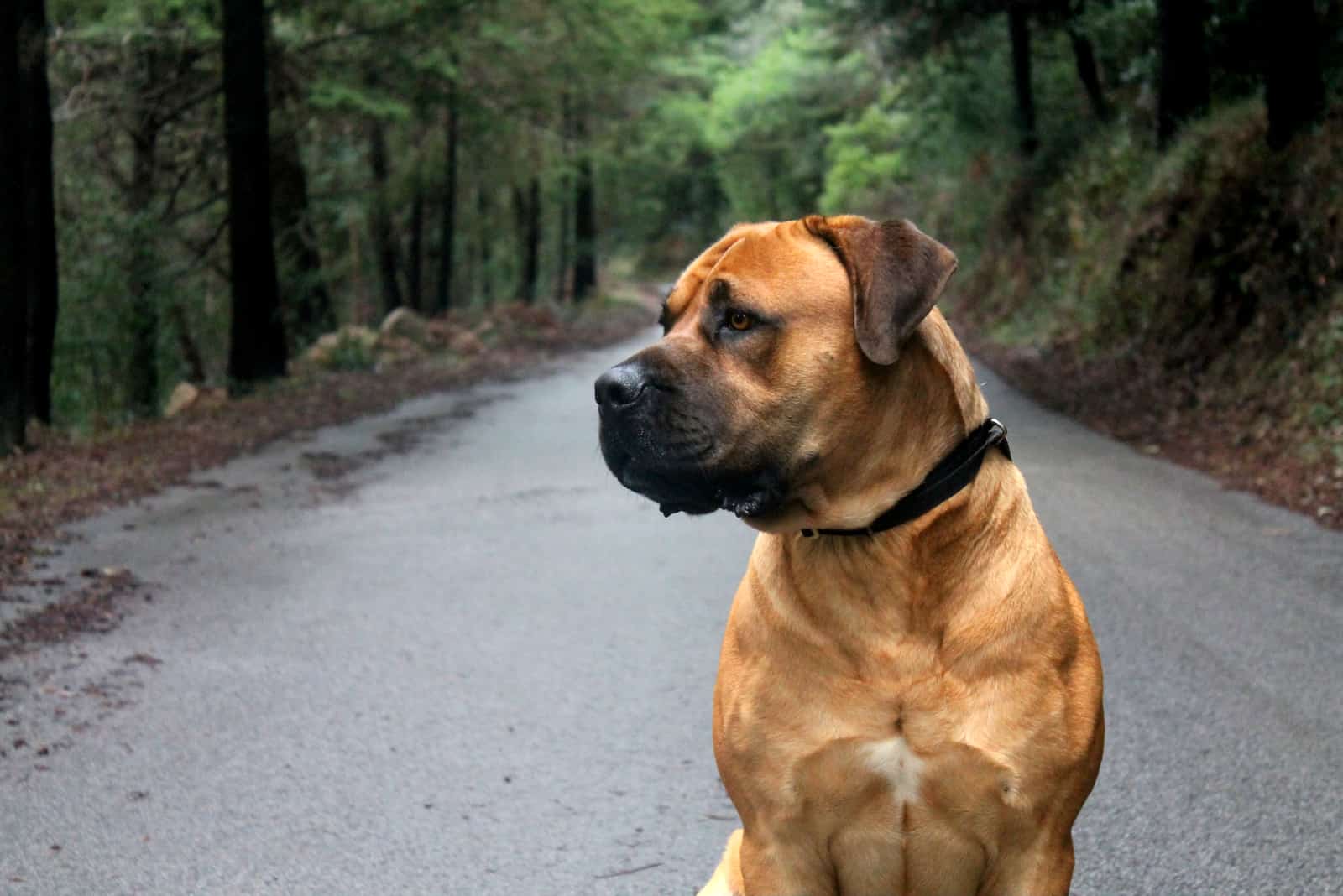
When we look at the Mastiff-type dogs, we realize that they all share similar health problems. Being a large breed of dog, the Boerboel suffers from certain breed-specific health problems. Its large size isn’t ideal for its overall health condition, and this may also affect its lifespan.
So, what kind of Boerboel health problems are we talking about? Here’s a list:
• Hip dysplasia
• Ectropion
• Entropion
• Obesity
• Heart problems
• Bloat
• Gastric dilatation volvulus
Perhaps the most common health problems in all large dog breeds are elbow and hip dysplasia. We can often see Great Danes, German Shepherds, Collies, and Cane Corsos suffering from such health problems. But, even medium and small dogs like Dachshunds, Australian Shepherds, Bulldogs, and Boxers can suffer from joint dysplasia.
Now, I’m not saying that every Boerboel puppy will inherit or develop these health problems. But, considering their size and structure, there is a possibility that some of these problems will develop over time.
Purchasing a puppy from a reputable Boerboel breeder decreases the risk of hereditary, breed-specific diseases. Additionally, taking your Boerboel puppy to the vet regularly will help extend its lifespan. A healthy Boerboel dog can live up to twelve years of age.
How Do You Make A Boerboel Grow Bigger?
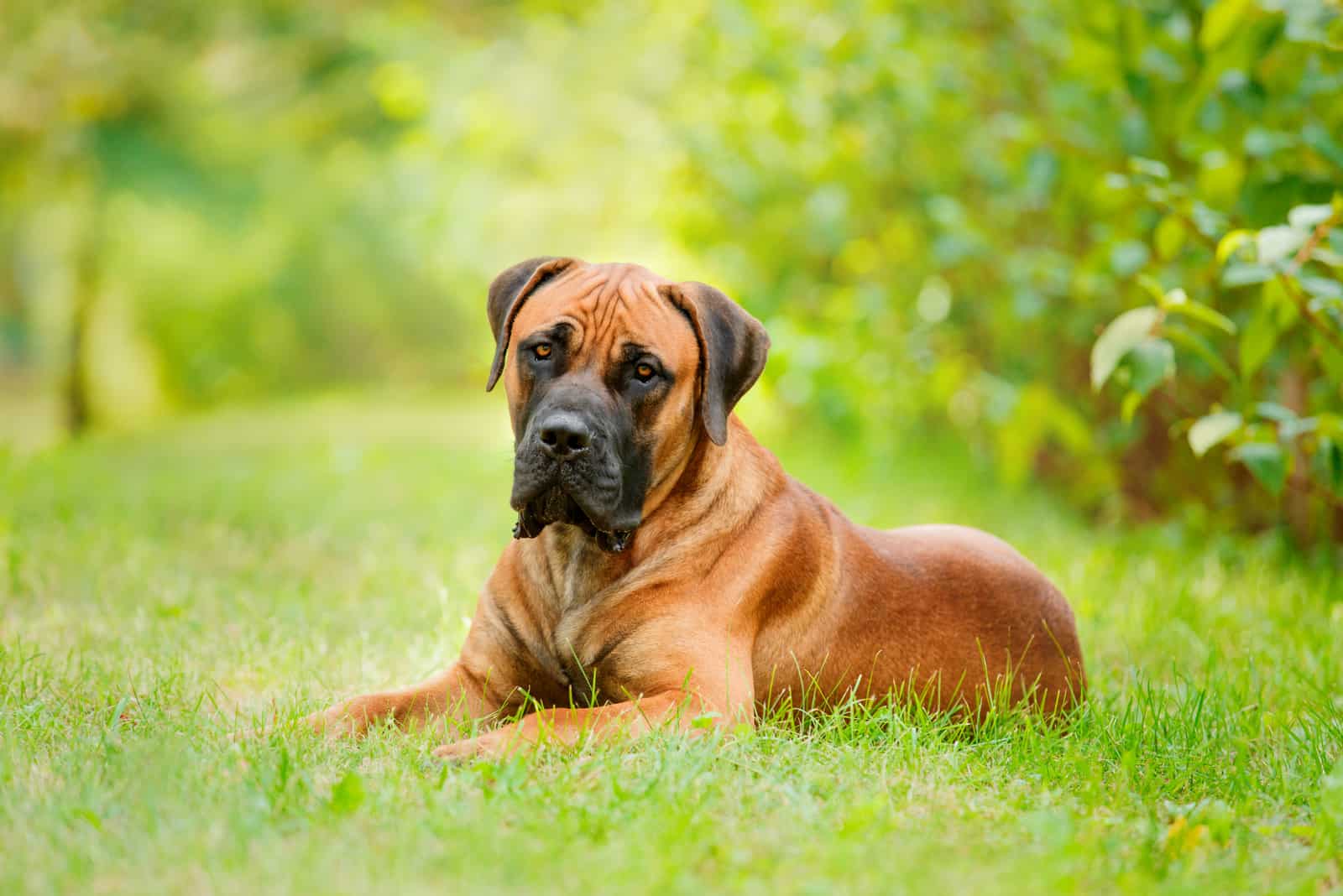
Most dog owners who decide to get a large breed of dog often ask, “How do I make my dog grow bigger?”
Well, each dog has an extent to how big it will get. The same goes with the Boerboel dog breed. Although there are ways to make your Boerboel grow bigger, it will not grow to be as big as a Great Dane.
There is no straight-up answer nor magical potion that will make your Boerboel puppy grow bigger. Boerboel puppy development takes time and patience.
For you to be sure that your Boerboel dog will grow big, it’s best to buy it from a reputable breeder who is well-known for producing high-quality Boerboel puppies.
And, just like every other dog, the Boerboel requires a high-quality diet and regular exercise to grow into a healthy canine. You can also consider feeding your dog a raw diet, after consulting with your vet nutritionist.
That said, you should also pay attention to what you feed your Boerboel puppy. I know that some dog owners are often tempted to feed their dog human food, but please keep in mind that there are things your Boerboel can and can’t eat.
For example, your Boerboel dog shouldn’t eat spicy human food, nor should it eat processed and salty food. Make sure to do your research before getting a puppy!
Let’s Wrap It Up
So far, we have learned that the Boerboel dog is a large dog from South Africa. Actually, in this Boerboel growth chart, we have learned exactly how large this dog can get.
The Boerboel’s big size can be quite challenging for new dog owners. I mean, it’s all fun and games until this puppy reaches a few hundred pounds, right?
This large breed of dog requires a lot of space when it reaches its adult size. Even when it’s a six-month-old puppy, the Boerboel needs a spacious environment to live in.
The Boerboel puppy also needs regular physical activity in order to properly develop its large body and great personality.
Hopefully, this Boerboel growth chart will be of good use if you decide to adopt this wonderful dog breed.
Related Content:
• Doberman Growth Chart: Growing Up Healthy
• German Shepherd Growth Chart – How Big Your GSD Puppy Will Be
• Saint Bernard Growth Chart: How Big Will This Puppy Grow?

